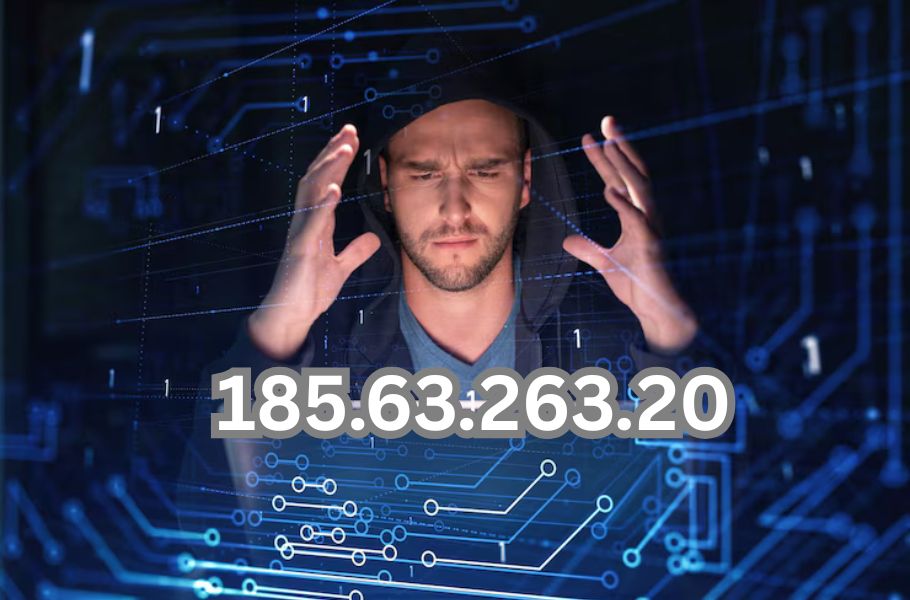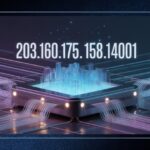Introduction
In today’s hyperconnected digital world, numbers often carry hidden meaning. One such number is 185.63.263.20. At first glance, it looks like a random string, but in reality, it represents an IP address—a critical component of how the internet functions. From enabling communication between devices to powering websites, IP addresses like 185.63.263.20 form the backbone of online connectivity. Understanding what they are, how they work, and why they matter can give you deeper insight into cybersecurity, networking, and digital identity.
This article explores the basics of 185.63.263.20, its benefits, challenges, real-world applications, and strategies to use and secure IP addresses effectively.
What is 185.63.263.20?
At its core, 185.63.263.20 is an IPv4 address—a numerical label assigned to devices connected to a network. The IPv4 system uses a 32-bit format, expressed as four decimal numbers separated by dots. Each segment can range from 0 to 255.
- IPv4 vs IPv6: IPv4 addresses like 185.63.263.20 are still widely used, though IPv6 (a newer protocol) is gradually replacing them to handle the growing number of devices.
- Purpose: An IP address identifies a device’s location within a network, allowing data packets to travel from one computer to another.
- Uniqueness: Every device has a unique IP address, ensuring that data reaches the correct destination.
Thus, 185.63.263.20 is not just a random number—it’s a unique identifier that enables digital communication.
Why IP Addresses Like 185.63.263.20 Matter
The internet wouldn’t function without IP addresses. Here’s why 185.63.263.20 and others are so vital:
- Device Identification – Each IP is like a digital “home address.”
- Data Routing – Ensures emails, messages, and websites reach the intended recipient.
- Location Awareness – Provides geographic context for online activity.
- Security and Tracking – Helps monitor malicious activity or unauthorized access.
- Customization – Businesses use IP addresses to analyze user behavior and personalize experiences.
In short, addresses like 185.63.263.20 power every online transaction, from streaming movies to logging into banking apps.
Real-World Applications of 185.63.263.20
IP addresses aren’t abstract concepts—they play practical roles daily.
- Website Hosting: Websites map domain names (like google.com) to IPs such as 185.63.263.20. Without this, browsers couldn’t load content.
- Cybersecurity: Security teams trace suspicious activity back to IPs, identifying potential hackers.
- Network Management: IT professionals monitor traffic and performance through IP logs.
- Geo-targeting: E-commerce stores and streaming platforms use IPs to customize services by region.
- Troubleshooting: If internet connectivity fails, checking the IP helps isolate problems.
For instance, if a company notices traffic spikes from 185.63.263.20, they can analyze whether it’s a legitimate customer or a bot attack.
Benefits of Understanding 185.63.263.20
Mastering the concept of IP addresses gives professionals and everyday users a powerful advantage.
For Individuals
- Better control of privacy settings.
- Ability to use VPNs or proxies to mask personal IPs.
- Awareness of how online identity is tracked.
For Businesses
- Enhanced cybersecurity by monitoring suspicious IPs like 185.63.263.20.
- Improved analytics for customer insights.
- Optimization of digital marketing campaigns with geo-based data.
For Developers and IT Teams
- Accurate server configurations.
- Efficient troubleshooting of network issues.
- Building secure, scalable infrastructures.
Common Mistakes When Handling IP Addresses
While 185.63.263.20 may look simple, mismanaging IP addresses can cause big problems.
- Exposing IPs publicly – Sharing sensitive IPs without safeguards can attract cyber threats.
- Ignoring updates – Not upgrading systems leaves IPs vulnerable to exploitation.
- Over-reliance on IPv4 – Failing to adopt IPv6 creates scalability issues.
- Weak firewalls – Without strong firewalls, malicious users can exploit IP vulnerabilities.
- Lack of monitoring – Many businesses fail to track IP activity, missing early warning signs of attacks.
These mistakes highlight why a structured IP strategy is essential.
Strategies to Secure and Optimize 185.63.263.20
If you’re managing networks, websites, or personal online identity, here are practical strategies:
- Use Firewalls: Block unauthorized traffic before it reaches sensitive systems.
- Implement VPNs: Mask your real IP to maintain privacy.
- Enable Multi-Factor Authentication (MFA): Add extra layers of security tied to IP verification.
- Monitor Logs Regularly: Track abnormal patterns from addresses like 185.63.263.20.
- Adopt IPv6 Gradually: Prepare for future scalability.
For businesses, integrating IP reputation systems is another powerful tactic—these databases flag suspicious IPs instantly.
Future Trends of IP Address Usage
The role of IP addresses is evolving rapidly. Here’s what the future may hold:
- Mass IPv6 Adoption – With billions of IoT devices, IPv6 will replace IPv4 gradually.
- AI in IP Management – Machine learning will detect anomalies linked to IPs like 185.63.263.20 faster than humans.
- Stronger Encryption – To safeguard against surveillance and hacking.
- IP Reputation Scores – Just as websites have SEO scores, IPs will carry trust ratings.
- Decentralized Networking – Emerging blockchain-based systems may reshape how IPs are allocated.
These trends highlight that while 185.63.263.20 represents today’s internet, its role will keep evolving.
Frequently Asked Questions (FAQ)
Q1. What exactly is 185.63.263.20?
It’s an IPv4 address, a unique identifier assigned to a device on a network for communication and routing.
Q2. Can 185.63.263.20 reveal personal information?
Yes, to some extent. It can indicate location and ISP details, but not exact personal data without legal access.
Q3. Why do businesses monitor IPs like 185.63.263.20?
To detect suspicious traffic, improve user experience, and analyze digital behavior.
Q4. How can I protect my IP address?
By using VPNs, strong firewalls, encryption, and regularly monitoring activity.
Q5. Will IPv4 addresses like 185.63.263.20 disappear?
Not immediately. While IPv6 adoption grows, IPv4 will coexist for years due to widespread usage.
Conclusion
At first glance, 185.63.263.20 might seem like a random number, but it represents something much larger—a building block of the digital age. IP addresses drive connectivity, enable personalization, and safeguard cybersecurity. By understanding their significance, benefits, and risks, individuals and businesses can harness them more effectively.
The future promises even greater reliance on these digital identifiers, with innovations like AI-driven IP management and IPv6 expansion. Whether you’re an everyday internet user or a tech professional, mastering the basics of 185.63.263.20 can give you a deeper appreciation of the invisible forces powering our online world.


